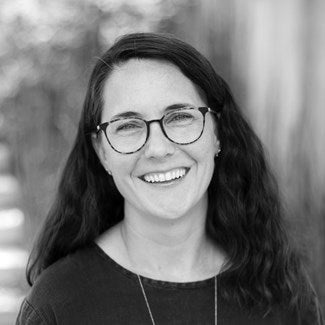Barbara Brown Wilson
Education
The University of Texas at Austin, PhD in Community & Regional Planning, Concentration in Sustainable Development
The University of Texas at Austin, Master of Arts in Architectural History
The University of North Carolina at Chapel Hill, Bachelor of Arts in Art History and Minor in Music Performance
Biography
Barbara Brown Wilson’s research and teaching focus on the history, theory, ethics, and practice of ecologically and community-oriented design and development, and on the role of urban social movements in the built world. Dr. Brown Wilson writes for both academic and mainstream audiences, and is the author of Resilience for All: Striving for Equity through Community-Driven Design (Island Press: 2018), and co-author of Questioning Architectural Judgement: The Problem of Codes in the United States (Routledge: 2013). Her research is often change-oriented, as she collaborates with community partners to identify mutually beneficial opportunities to co-produce knowledge toward a just transition. She is a co-founder and former faculty director of the UVA Karsh Institute for Democracy Center for the Redress of Inequity through Community-Engaged Scholarship (aka The Equity Center), where she still actively contributes as a partner in many applied projects including as a Co-PI in the NSF CoPE Eastern Shore Climate Equity Project. She was also a co-founder of the Design Futures Student Leadership Forum, a five-day interdisciplinary summit that has served for the past decade connecting emerging design thinkers with the principles of equitable design practice and with each other. She is on the board of the Community Climate Collaborative (C3), and an active partner in systems change oriented projects across Virginia and the globe.
Wilson teaches required classes in the MUEP and BUEP programs, including Methods of Community Engagement and Research and studios and interdisciplinary electives such as Climate Justice in Cities. In her courses, students often work with place-based community groups to apply their skills in collaboration with the local knowledge of traditionally under-resourced partners to assist with community-driven projects.

